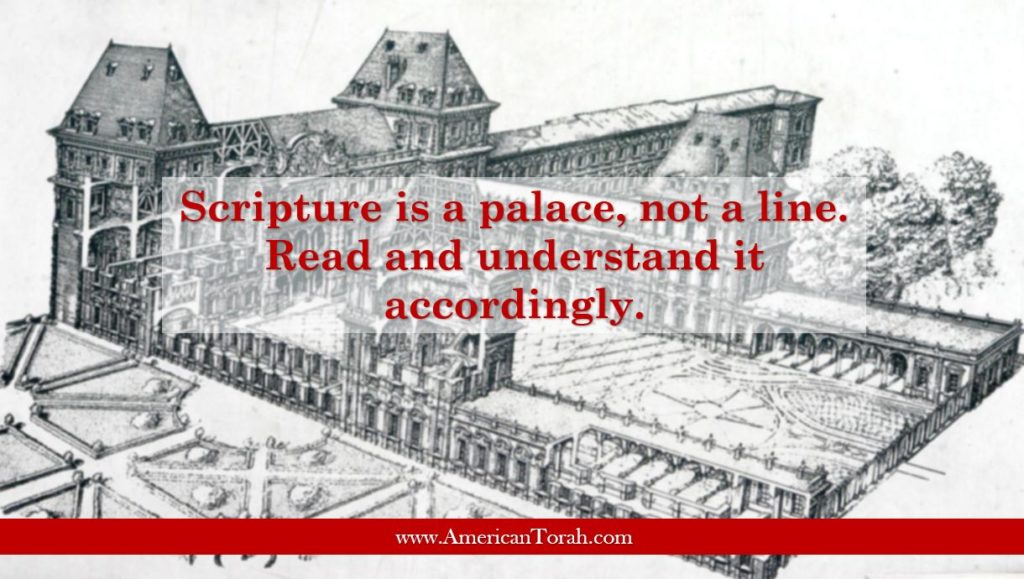
When God made mankind, he put them in the Garden and told them they could eat from every plant, right?
Genesis 1:29 And God said, “Behold, I have given you every plant yielding seed that is on the face of all the earth, and every tree with seed in its fruit. You shall have them for food.”
Genesis 1:1-2:3 is a summary of creation week. Genesis 2:4-25 tells the same exact story but from a different vantage point. It’s hazy regarding the passage of time, leaves out some details, and adds some others. That doesn’t mean the two accounts are contradictory, only that they have different foci.
There is one problem, however. There is an apparent contradiction between Genesis 1:29 and 2:16-17.
Genesis 2:16-17 And the LORD God commanded the man, saying, “You may surely eat of every tree of the garden, but of the tree of the knowledge of good and evil you shall not eat, for in the day that you eat of it you shall surely die.”
Which is it? Can man eat every plant or not? The answer is yes!
There is no contradiction. The confusion is not in the words, but in the reader who treats them like a mathematical text. Genesis was written to be understood by ordinary people. It’s bare meaning had to be accessible to shepherds and farmers, so it was written in the same basic language that they themselves used.
When a subsistence farmer says, “Let’s get all these fields planted,” does he mean every single field in existence? Of course not. Does he even mean all of his own fields? No again. He only means all the fields that are supposed to be planted at this time, and he expects that everyone to whom he is speaking will understand that.
The ancient Hebrews knew the story of the Garden of Eden and the Tree of Knowledge of Good and Evil. When they heard or read, “I have given you every plant that grows on the earth,” they didn’t need to hear “except for this one” to understand that there was at least one exception.
We don’t need to hear it either. Instead, we need to understand that God and his words recorded in the Scriptures are holistic. They are a unified whole (echad in Hebrew) with depth and height and breadth. We cannot understand the words of Paul or John without understanding Moses and Isaiah, because the latter are a foundation and framework for the former. Likewise, since we do not live within the cultural context of Moses or Isaiah, we cannot completely understand their words either without Paul and John to finish the walls and trim.
Scripture is a palace, not a line. Read and understand it accordingly.
Everything that Yeshua (aka Jesus) & the Apostles taught
Come with me as I draw out the connections that are so often missed |


Thank you, your insight is edifying.
I’m sure the ancient non Hebrew people rationalized evil just as modern man still does, yet I doubt they would not have dared to ridicule the Mosaic law for being inconsistent as entire institutions do today.
There is another potential explanation for the apparent discrepancy in God’s Word to Adam and Eve. God’s Word says, “I have given you every plant yielding seed and every tree with seed in its fruit…but, of the tree of good and evil, you shall not eat….” I wonder if the tree of knowledge had no seed, and was therefore not allowed. Good and evil do not grow from natural seed. For good or evil to flourish in your spirit and soul, it must be “grafted” in, and if not quickly removed, it will adhere and bond and become a part of our life, distorting the natural fruit produced by the seed. (That’s my story, and I’m sticking to it!!) 🙂
Interesting idea! I hadn’t thought of that before.
On a slight tangent, I’ve heard some argue that mushrooms are verboten because they don’t have seeds. They have spores.
I understand where they’re coming from and if eating mushrooms bothers someone, I won’t try hard to convince them otherwise, but I think that’s too narrow a definition of “seed” as used in Scripture. People and animals also bear seed, so the word doesn’t necessarily refer to an embryonic plant so much as to the capacity to reproduce.